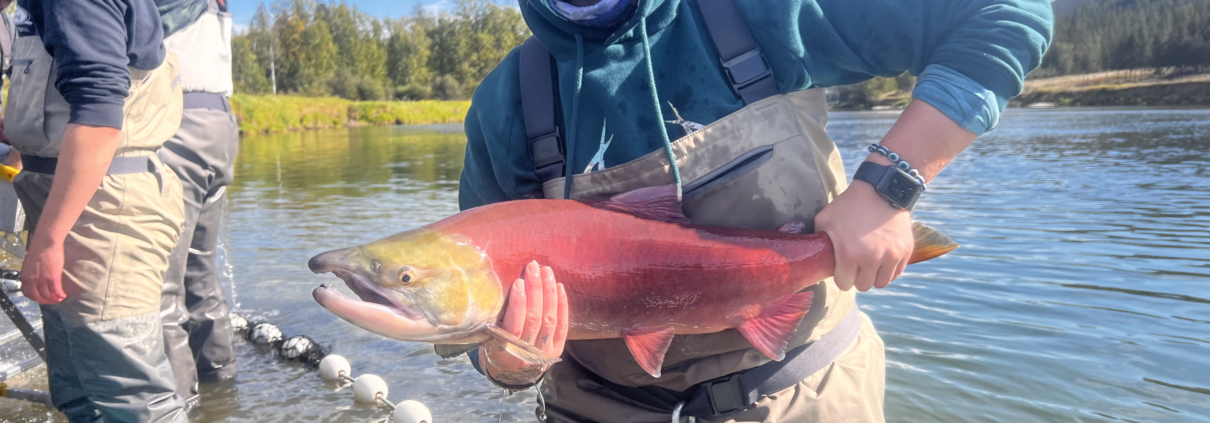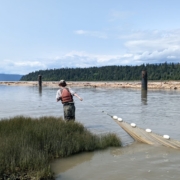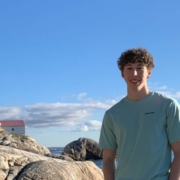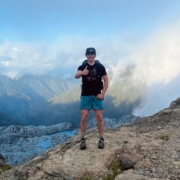Community Bursary Spotlight: Selena Carl
Meet Selena Carl, a dedicated salmon steward whose research is helping improve survival for endangered juvenile Chinook in the Okanagan. Each year, the Pacific Salmon Foundation (PSF) awards multiple bursaries worth $2,500 each to passionate students like Selena.
To be considered for PSF’s Stewardship Community Bursary, submit your application online before October 30, 2025.
Eligible applicants must be residents of B.C. or the Yukon, show financial need, and be enrolled full-time (second year and above) in a post-secondary program connected to salmon, preferably with some experience in stewardship groups or hatcheries.
Read Selena’s Q&A below to learn more about her hands-on experience in salmon stewardship and master’s research at Thompson Rivers University.
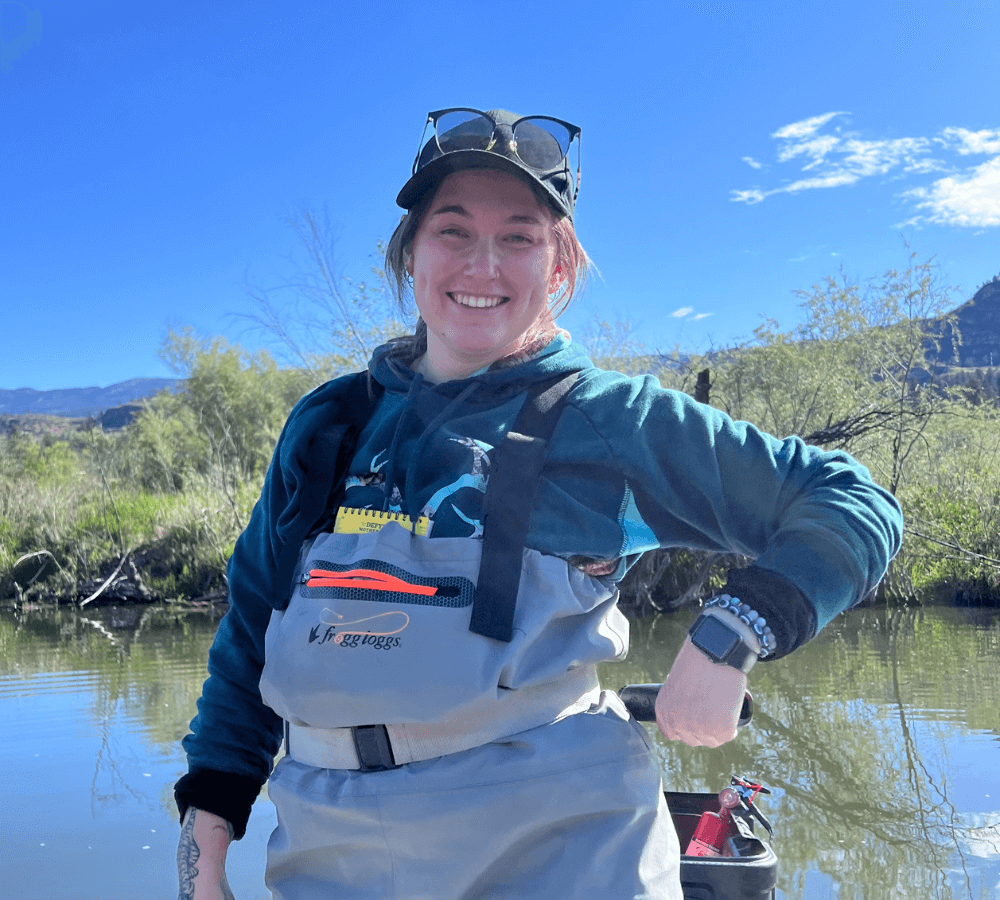
Why do Pacific salmon matter to you?
I was born and raised in Kelowna, and salmon have always been part of my life. My late dad was an avid fisherman, so our summers were spent camping and fishing, stocking the freezer with Chinook and sockeye to eat through the winter.
Salmon connect all of us, play a vital role in ecosystems, and are incredibly resilient – jumping huge heights and travelling thousands of kilometres.
Tell us more about your fieldwork experience with salmon.
My first hands-on experience was with Fisheries and Oceans Canada as a stock assessment tech, monitoring salmon populations in the lower Shuswap River. I loved being outdoors and handling the fish. Being eye-to-eye with a 55-pound Chinook and seeing its battle scars was incredible.
I also worked with the Okanagan Nation Alliance as a hatchery tech, rearing Chinook and sockeye and supporting community-based restoration. A highlight was the Fish in Schools program, where school kids raise salmon from eggs to fry and then release them. These experiences deepened my understanding of the cultural and ecological significance of salmon and taught me that successful conservation isn’t just about science – it’s about education, collaboration, and respect for Indigenous knowledge. That perspective continues to shape how I approach research today.

What does your master’s research at Thompson Rivers University focus on, and what have you learned so far?
My research focuses on endangered juvenile Okanagan Chinook salmon. I study how they survive and move through the watershed after being released by the Okanagan Nation Alliance’s kł cp̓əlk̓ stim̓ Hatchery in Penticton. Using acoustic tags, I track how long they stay, when they leave, and whether survival depends on the release location.
So far, I’ve found survival is even lower than expected. We thought most fish would migrate within two to five months after hatching, but that isn’t happening. Warmer waters may be acting as barriers, and several narrow, shallow stretches with heavy boat traffic make fish passage especially challenging.
My early findings have led to management changes and fish are now being released further downstream to give them a better chance of survival.

What are your career goals and aspirations?
I plan to pursue a career as a conservation biologist, focusing on at-risk salmonid species. I want to work in research and restoration while collaborating closely with First Nations communities to integrate Traditional Knowledge.
How has the PSF bursary supported you?
The bursary covered conference travel and other costs, allowing me to focus fully on my thesis. It also reinforced my sense of belonging in the salmon community and motivated me to push forward with my research.
What advice would you give to other students considering salmon conservation as a career?
Get hands-on experience! Volunteer, do fieldwork, and talk to people in the industry. Scientists are some of the nicest people you’ll meet, and love talking about fish. Explore broadly and don’t let fear or grades hold you back; every new skill and experience could help advance your career.

